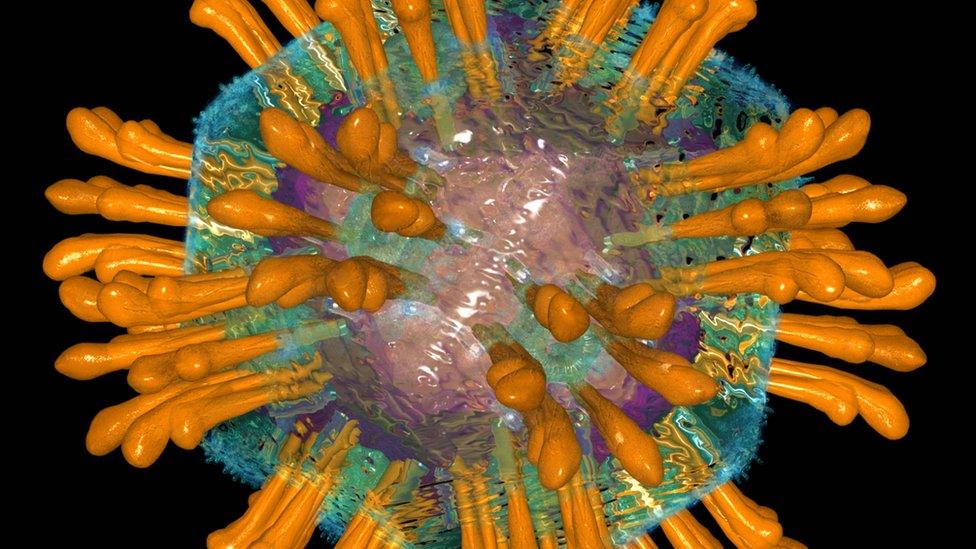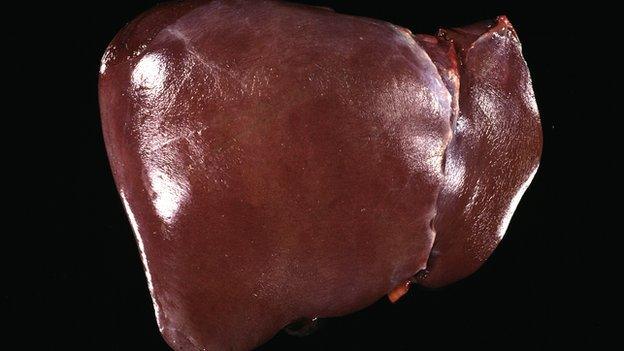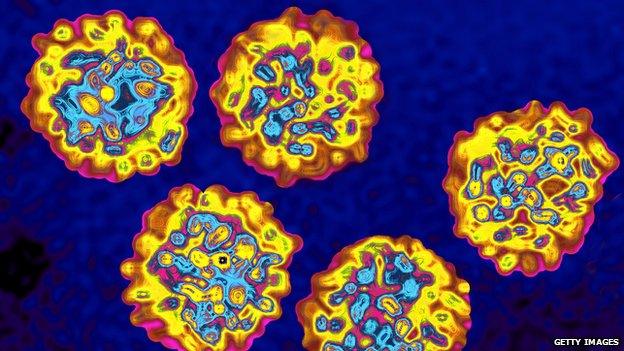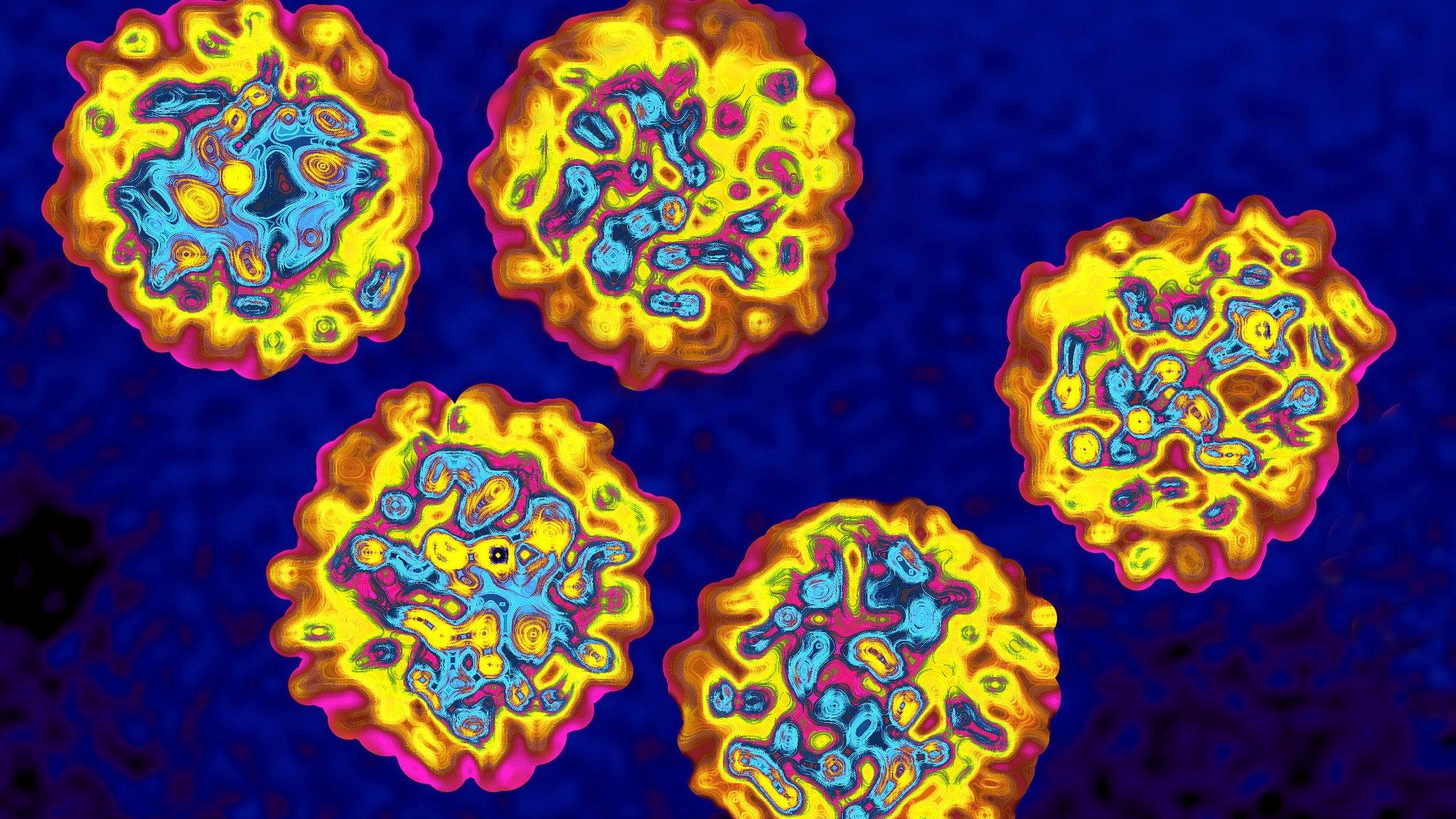Hepatitis C patients 'go abroad for drugs'
- Published

Hepatitis C infection can cause cirrhosis and liver cancer
Patients with hepatitis C are buying medication online from abroad to treat their disease to avoid long waits on the NHS, say experts.
NHS watchdog NICE has approved the use of new drugs that cure more than 90% of some strains, but there are calls for them to be made more widely available.
NHS England said 10,000 were being treated this year and that will rise.
An estimated 215,000 people in the UK have hepatitis C, which can cause liver damage and cancer.
'To eliminate Hepatitis C, we need to get angry'
Hepatitis C origins traced back to WWII hospitals
Radio 4's You & Yours has seen confidential documents, which suggest the cost to the NHS of some medications has dropped by nearly three-quarters.
Zsuzsanna Snarey is thought to have developed the illness after having treatment for polio as a child.
She was told she would have to wait for medication on the NHS and said: "Treatment was withheld from me - people who were much worse than me had to be treated first."
She decided to take matters "into her own hands" and paid £1,200 for medication from India, using a website called FixHepC. The treatment was successful.
Dr James Freeman, the founder of the site, told You & Yours they had helped 400 people in the UK to access medications from abroad in the last year, but estimates the total number of people receiving it is likely to be three times as high.
In England, 22 operational delivery networks, consisting of multidisciplinary teams, decide who should be treated based on clinical need, as NICE suggests.

Hepatitis C damages the liver
Each area has a set number of patients to treat, allocated by NHS England based on estimated prevalence of hepatitis C.
Dr Ashley Brown, from Imperial College Healthcare NHS Trust, said: It is particularly frustrating, I have patients who I know are eligible for treatment, the treatment has been approved by NICE but I can't treat them due to budgetary restrictions.
"We all accept the fact the NHS pot is limited, but if that is the case, that pot of money should pay for treatment for as many patients as possible.
"We have long waiting lists here in west London; in other parts of the country there are short waiting lists or no waiting lists at all."
Dr Brown said he had to prioritise those patients with the most severe disease - but elsewhere people with more mild disease were getting treated sooner.
He added that he had patients who were buying medications from abroad.
Unacceptable risk
Baroness Randerson, co-chair of the All-Party Parliamentary Group on Liver Health, said buying medication from abroad posed an unacceptable risk to patients.
Charles Gore, the chief executive of the Hepatitis C Trust, said "if the price of drugs is falling, we want those savings to be used to expand the number of people that can be treated".
In a statement, NHS England said that an extra £200m a year had been made available to fund treatment with new drugs and had helped to cut deaths by 10% in one year. The number of patients receiving the drugs would rise to 15,000 in 2021.
"As prices come down, we hope to be able to expand treatments even further in future years within the funding available and the industry is now engaging in the discussions with us about how best to do this."
Public Health Wales told the programme there are no waiting times in Wales to access these new hepatitis C treatments. The Scottish government said there is no limit on the number of people who can be treated in Scotland.
Dr Faye Kirkland is a GP working in the NHS.
- Published9 June 2014

- Published12 April 2014

- Published25 March 2014